Today we have another all-flash M.2 NAS, and this one is a bit different. The TerraMaster F8-SSD Plus is a super quiet 10Gbase-T NAS with the Intel Core i3-N305 that many have asked for since we did our Asustor Flashstor 12 Pro FS6712X Review. It is also much lower cost than the QNAP TBS-h574TX we reviewed. From a power, noise, and feature perspective, TerraMaster has a great product. There are certainly some quirks to this 10GbE 8x M.2 NAS that we are going to get into in this review, as in we have an entire page dedicated to something we ran into. There is a lot to cover, so let us get to it.
TerraMaster F8-SSD Plus NAS Overview
For this one, we have a video:
As always, we suggest opening this in its own browser, tab, or app for the best viewing experience.
The TerraMaster F8-SSD Plus NAS is really intriguing. This is the “Plus” Intel Core i3-N305 and 16GB model. There is also a standard N95 and 8GB model that might end up being the better buy. At $799, the Plus model is far from cheap. As we are writing this, it is now down to $699 on various retailers. The standard model was $599 but is now down to $499. That $499 model feels very exciting, perhaps more so than the version we are reviewing. If you simply want the links, here are the Amazon Affiliate links to the TerraMaster F8-SSD Plus and Terramaster F8-SSD.
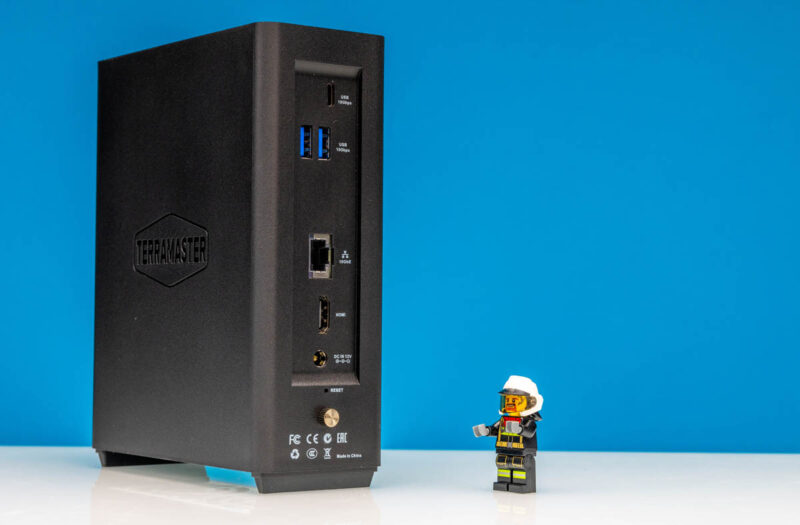
While you can build something cheaper, this is a quiet system, and it is very compact. For a lot of folks, just having something that is relatively easy to get started with and in a very small package is worth a small premium.
TerraMaster F8-SSD Plus NAS External Hardware Overview
First off, let us get to the best part of the system: it is small. Measuring 177 x 160 x 140 mm or around 7 x 6.3 x 5.5″, this NAS is the size of a decent novel.
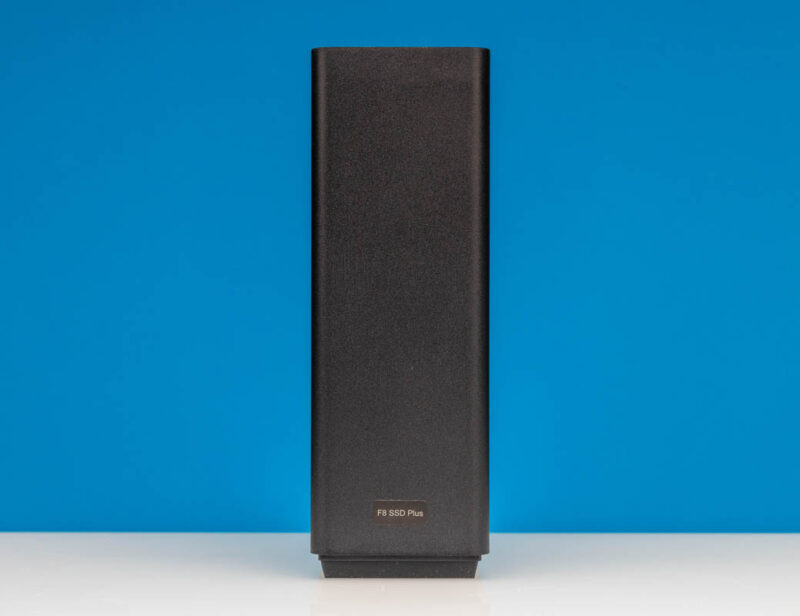
Or, to give you a relatable frame of reference, this is a Lego figure for scale.
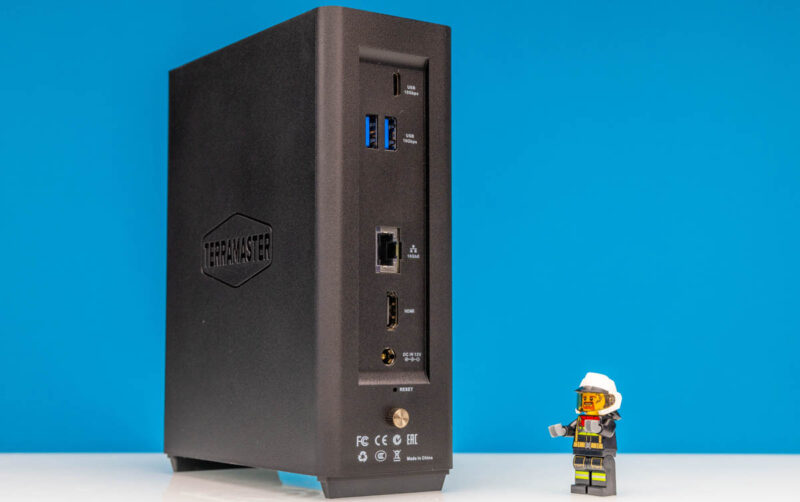
The side has the logo, and a sticker for tech support.
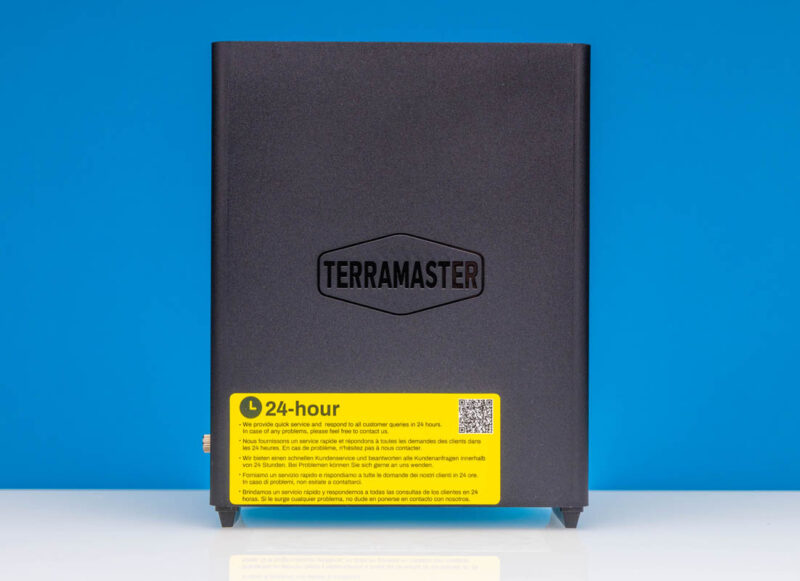
The other side has the logo.
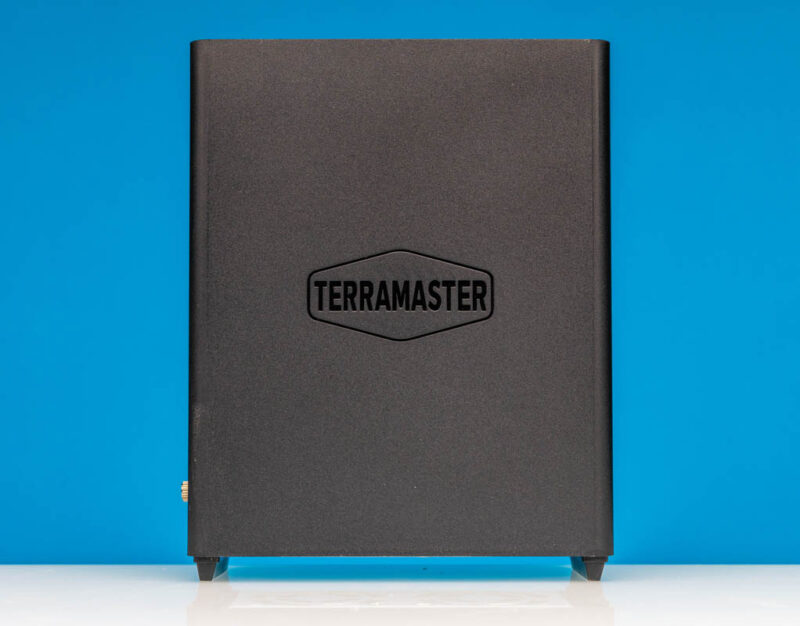
The top has a big vent and a power button. This view should get you excited about what is inside.
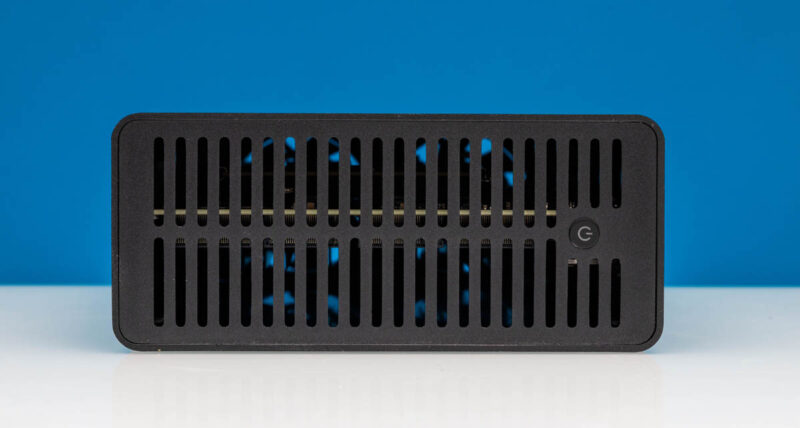
On the bottom, we have fans and rubber feet. The rubber feet are tall, allowing the fans enough room to gather air before pushing it up through the system. Seeing a dust filter here would have been nice, but it is a neat design.
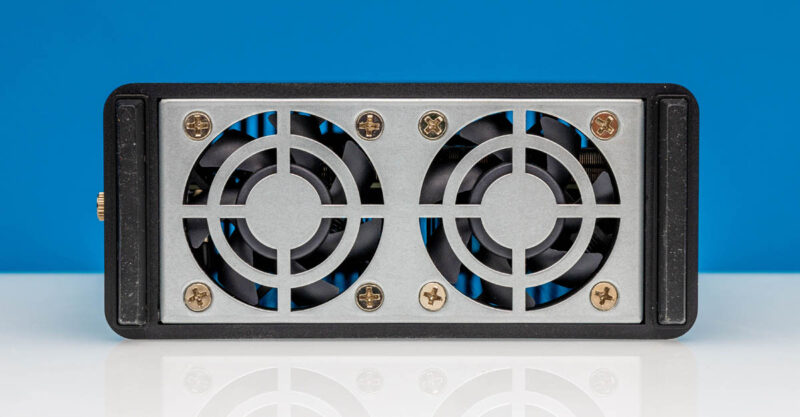
On the back, we get the magic. There are three USB 3.2 Gen2 10Gbps ports. Two are Type-A, one is Type-C. We also get a HDMI port and the power input.
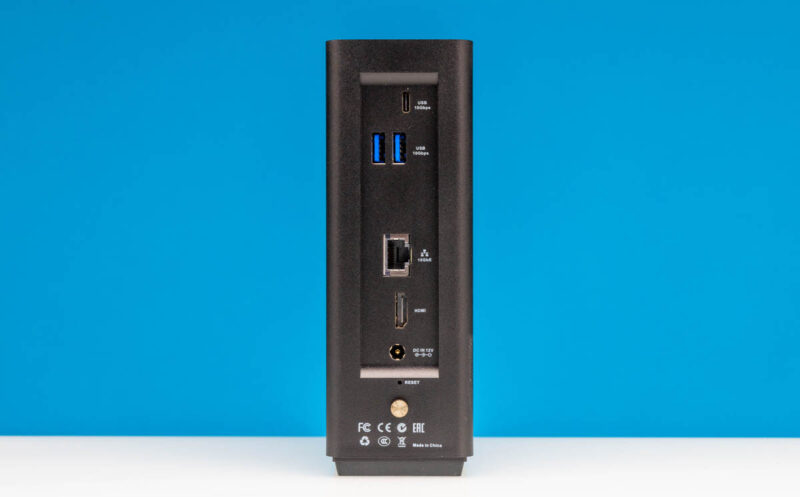
There is a sole network port, but it is a 10Gbase-T port. Those who want a simple and portable 10GbE NAS might have found it with this.
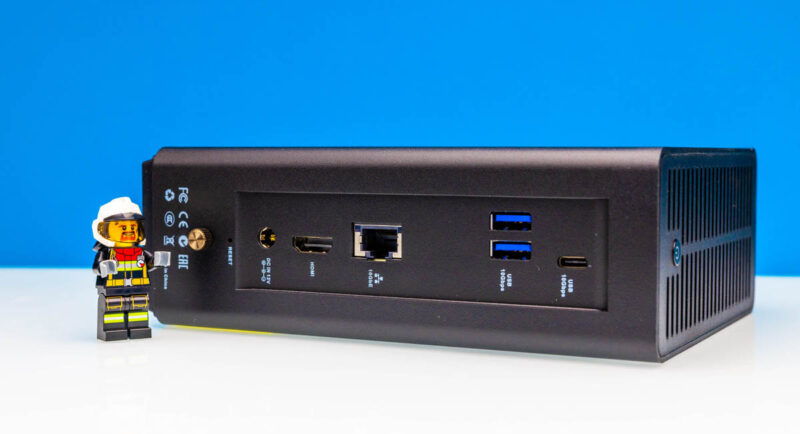
The little screw at the bottom rear is the only screw that keeps the system together. A turn of the thumb screw and a put on the fan grille on the bottom opens up the system.
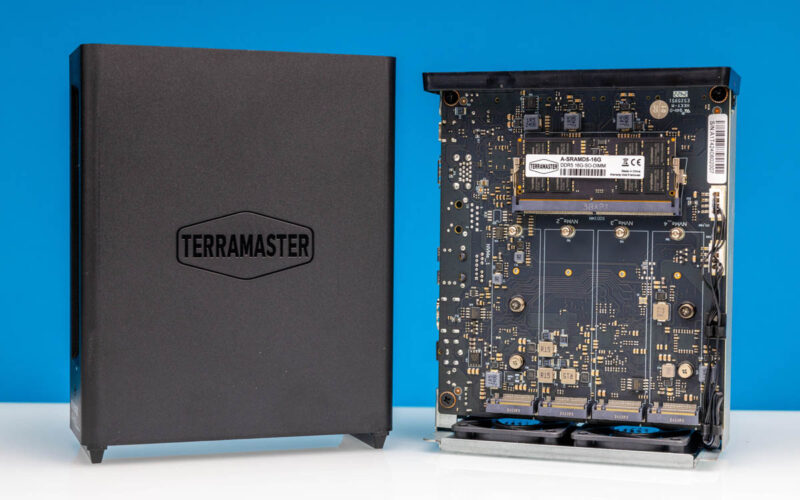
With that, let us get inside.

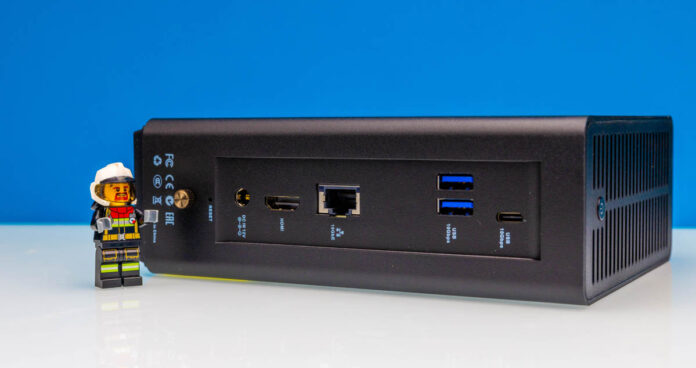
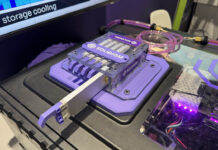
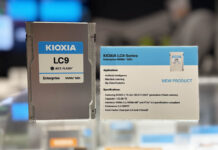
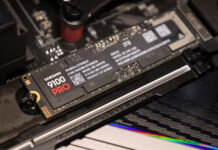
Regarding the drive-supplied heat-sinks not fitting: are those heat-sinks out of spec for m.2, taking more space than they should? Or is it that the spacing of the m.2 slots on the NAS motherboard is out of spec, not having as much spacing as they should?
Very nice! I wonder if they will make a U.2 version so we can fill it with eight of those 15.36TB SSDs that are starting to appear second-hand on eBay for around the same price per TB as a new Samsung QVO SATA.
I would have preferred an SFP+ slot.
Would be interesting to see if and how well this would work with trueNAS as the OS.
Can you install truenas?
SFP+ would have been a great step in the right direction.
Can we get power figures without drives? 8xanything is going to vary wildly based on the drives used.
Does it accept power in on the usb-c port? If so that makes it a lot more portable with a resonably capable GaN usb-c brick
I just want something like this with dual sas hba ports that I can attach to a couple home lab hosts.
Oh gee! Flash NAS for the “Gotta Have It Yesterday” generation.
Sory. Nope. No sale here.
A true test would be installing TrueNAS Scale and configuring 8x 4TB SSD drives in RAIDZ2, or similar. Also it’d be nice to see how the GPU performs tasks like transcoding… pretty sure it goes beyond the intended hardware review.
I hope the next version will show 2x 10Gb ports (ideally SFP+) and CPU with more PCIe lanes – such as embedded AMD variant. Intel was always stingy with PCIe lanes.
And also, AMD would provide ECC support… but I feel I’m venturing into higher class of hardware. While doable, it would increase the price and shrink the potential market… probably not going to happen. But I’d buy such an advanced device in a second.
What’s the point of using nvme ssds with over 3500mbs writing at a quarter of their speed?
To not have moving parts, be quiet, low power, and portable.
what would be a reasonably reliable and priced UPS for this device. PSU is 72 W on this device and Specs say, “Power consumption 45.0 W (Fully loaded Seagate 2TB M.2 SSDs in read/write state).” UPS compatibility chart on Terra-Master site has dozens of out-dated, no-longer available listed UPSs on sheet. Noob here and would like some UPS protection advice for this new toy.
~9W rated power (SN850X 1TB 3.3v, 2.8A) x 8 = 72W
I don’t feel very comfortable with a 72W power supply for the whole system.